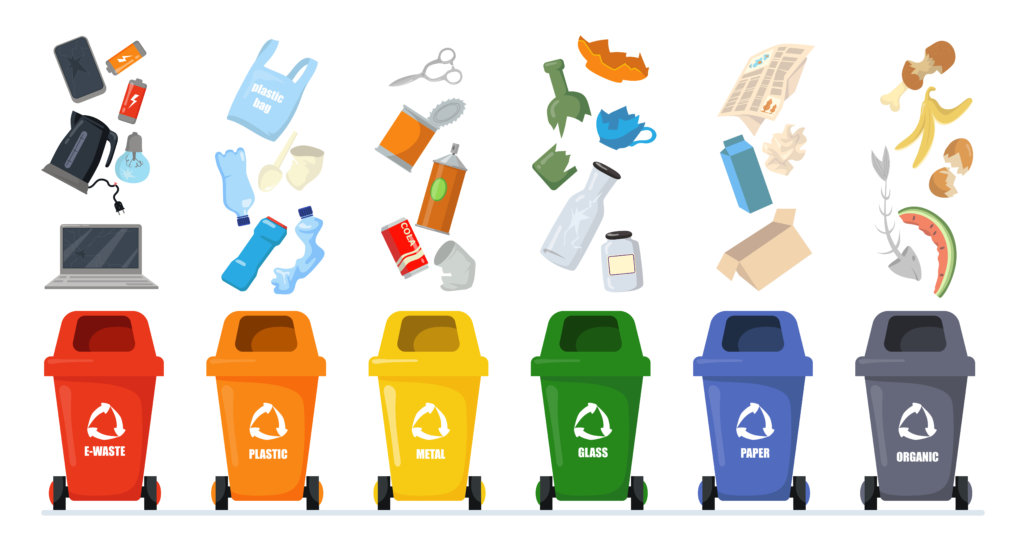Only Russian
Библиографический список:
- Mesarovich, M., Mako, D., Takahara, I. Theory of hierarchical multi-level systems [Teoriya iyerarkhicheskikh mnogourovnevykh sistem]. M.: MIR, 1972.344 p.
- J. Dzh. Gelbreyt. Economic theory and the goals of society [Ekonomicheskaya teoriya i tseli obshchestva]. – M .: Progress. 1976.230.
- Coase, Ronald. The Institutional Structure of Production // The American Economic Re-view, vol. 82, n ° 4, pp. 713-719, 1992. (Nobel Prize lecture).
- Simon, G. Decision theory in economic theory and behavioral science [Teoriya prinyatiya resheniy v ekonomicheskoy teorii i nauke o povedenii] // In the book: Theory of the firm. SPb, 1995.
- Bartov, OB, Tretyakova, EA Meso-level model of the influence of information and communication resources on the economic development of Russian regions [Mezourovnevaya model’ vliyaniya informatsionno-kommunikatsionnykh resursov na ekonomicheskoye razvitiye rossiyskikh regionov]// Economy of the region. 2021.Vol. 17, no. 2.S. 402-417. – https://doi.org/10.17059/ekon.reg.2021-2-4
- Lavrikova, Yu. G., Suvorova, AV Optimal spatial organization of the region’s economy: search for parameters and dependencies [Optimal’naya prostranstvennaya organizatsiya ekonomiki regiona: poisk parametrov i zavisimostey]// Economy of the region. 2020.Vol. 16, no. 4.S. 1017-1030. https://doi.org/10.17059/ekon.reg.2020-4-1
- Kotov, AV Spatial analysis of structural shifts as a tool for studying the dynamics of economic development of macroregions in Russia [Prostranstvennyy analiz strukturnykh sdvigov kak instrument issledovaniya dinamiki ekonomicheskogo razvitiya makroregionov Rossii]// Economy of the region. 2021.Vol. 17, no. 3.S. 755-768. https://doi.org/10.17059/ekon.reg.2021-3-3.
- Timiryanova, V. M. Research of the connection between production, exchange and consumption by methods of hierarchical analysis [Issledovaniye svyazi proizvodstva, obmena i potrebleniya metodami iyerarkhicheskogo analiza]// Economy of the region. 2021.Vol. 17, no. 1.S. 145-157. https://doi.org/10.17059/ekon.reg.2021-1-11
- Akaev, A. A., Desyatko, D. N., Petryakov, A. A., Sarygulov, A. I. Regional development and the education system in the context of digital transformation [Regional’noye razvitiye i sistema obrazovaniya v usloviyakh tsifrovoy transformatsii]// Economy of the region. 2020.Vol. 16., no. 4.S. 1031-1045. https: // doi.org/10.17059/ekon.reg.2020-4-2
- Mashunin, Yu.K. The theory of forecasting the development of a multilevel hierarchical system of the state economy based on vector optimization: monograph [Teoriya prognozirovaniya razvitiya mnogourovnevoy iyerarkhicheskoy sistemy ekonomiki gosudarstva na baze vektornoy optimizatsii: monografiya]/ Yu.K. Mashunin. – Moscow .: RUSAYNS, 2021 .– 390 p. ISBN 978-5-4365-6727-3
- Leontiev, V.V. Study of the structure of the American economy [Issledovaniye struktury amerikanskoy ekonomiki]. Moscow: Gosstatizdat, 1958.534 p.
- Granberg, A.G., Suslov, V.I., Suspitsyn, S.A. Multi-regional systems. Economic and mathematical research [Mnogoregional’nyye sistemy. Ekonomiko-matematicheskoye issledovaniye]/ SB RAS, IEIE, State. NRU “Council for the Study of Produces. forces “. Novosibirsk: Sib. scientific. publishing house, 2007.370 p.
- Kryukov, V.A., Baranov, A.O., Pavlov, V.N., Suslov, V.I., Suslov, N.I. Problems of development of a single complex of means of macroeconomic interregional intersectoral analysis and forecasting [Problemy razvitiya yedinogo kompleksa sredstv makroekonomicheskogo mezhregional’nogo mezhotraslevogo analiza i prognozirovaniya]. 2020. Vol.16, no. 4.S. 1072-1086. https://doi.org/10.17059/ekon.reg.2020-4-5
- Eliseeva, I.I., Platonov, V.V. Dynamic potential – the missing link in the study of innovation [Dinamicheskiy potentsial – nedostayushcheye zveno v issledovanii innovatsionnoy deyatel’nosti]// Finance and business. 2014. No. 4. S. 102-110.
- Tatarkin, A.I., Sukhovey, A.V. Building an innovative economy in the Russian Federation: problems and prospects [Postroyeniye innovatsionnoy ekonomiki v RF: problemy i perspektivy]// Innovations. 2017. No. 7. P. 11–15.
- Lavrikova, Yu. G., Suvorova, A. V. Optimal spatial organization of the regional economy: search for parameters and dependencies [Optimal’naya prostranstvennaya organizatsiya ekonomiki regiona: poisk parametrov i zavisimostey]// Economy of the region. 2020.Vol. 16, no. 4.S. 1017-1030. – https://doi.org/10.17059/ekon.reg.2020-4-1
- Minakir, P.A., Demyanenko, A.N., Goryunov, A.P. Research methodology of integration and fragmentation in the economic space of Russia [Metodologiya issledovaniya integratsii i fragmentatsii v ekonomicheskom prostranstve Rossii]// Russia. Development trends and prospects. Yearbook. Issue 13 / RAS. INION. Dept. scientific. cooperation; otv. ed. V.I. Gerasimov. – M.: INION RAN, 2018.Part 2. 936 p. S. 885–888.
- Mashunin, Yu.K. Management of the region’s economy: monograph [Upravleniye ekonomikoy regiona: monografiya]. – M .: RUSAYNS, 2017 .– 342 p. ISBN 978-5-4365-1984-5
- Sio, KK Management economics [Upravlencheskaya ekonomika]: Per. from English – M .: INFA-M, 2000 .– 671 p.
- Khan, K. Controlling [Kontrolling]. – M .: INFA-M, 2004 .– 671 p.
- Fayol, A. (1992). General and industrial management [General and industrial management]. – M: Controlling.
- Babkin, A.V., Baikov, E.A. Collaboration of industrial and creative clusters in the economy: essence, forms, features [Kollaboratsiya promyshlennykh i tvorcheskikh klasterov v ekonomike: sushchnost’, formy, osobennosti]// Scientific and technical bulletins of the St. Petersburg State Polytechnic University. Economic sciences. 2018.Vol. 11.No. 4.P. 141-164.
- Mashunin, Yu. K., Mashunin, K. Yu. Modeling and practice of innovative development of an industrial cluster [Modelirovaniye i praktika innovatsionnogo razvitiya promyshlennogo klastera]// Scientific and technical statements of SPbPU. Economic sciences. 2017. Vol.10, No. 4. S. 187-197. DOI: 10.18721 / JE. 1041828.
- Mashunin, Yu.K., Mashunin, K.Yu. Strategic and innovative development of a cluster based on the digital economy [Strategicheskoye i innovatsionnoye razvitiye klastera na baze tsifrovoy ekonomiki]// Scientific and technical bulletin of SPbSPU. Economic sciences. 2018.Vol. 11, No. 4, pp. 85-99. DOI: 10.18721 / JE.11406
- Mashunin, Yu.K. Development of a strategy for the development of a municipal formation: a monograph [Razrabotka strategii razvitiya munitsipal’nogo obrazovaniya: monografiya]. – LAP LAMBERT, 2017 .– 173 p. ISBN 978-3-659-94001-9
- Mashunin, Yu.K., Mashunin, I.A. Forecasting the development of the regional economy using the “Input – Output” tables [Prognozirovaniye razvitiya ekonomiki regiona s ispol’zovaniyem tablits «Zatraty – Vypusk»]// Regional Economy – 2014. – No. 2. P. 276-289. UDC: 338.27: 519.714
- Mashunin, Yu.K. Economic and mathematical modeling and forecasting the development of the regional economy on the basis of input-output balance and investment [Ekonomiko-matematicheskoye modelirovaniye i prognozirovaniye razvitiya ekonomiki regiona na osnove mezhotraslevogo balansa i investitsiy]// Proceedings of the Granberg Conference, October 10-13, 2016, Novosibirsk: Intern. conf. “Spatial analysis of socio-economic systems: history and modernity”: collection of articles. reports – Novosibirsk: IEOPP SO RAN, 2017, pp. 379-385.
- Mashunin, Yu. K. Research, forecasting the development of the economy, industry and the formation of the budget of the region, the state in the digital economy [Issledovaniye, prognozirovaniye razvitiya ekonomiki, promyshlennosti i formirovaniye byudzheta regiona, gosudarstva v usloviyakh tsifrovoy ekonomiki]. 221-250 p. // In the monograph: Digitalization of economic systems: theory and practice / ed. Dr. econ. Sciences, prof. A. V. Babkina. – SPb. POLYTECH-PRESS, 2020. –796 p. ISBN 978-5-7422-6931-1
- Yu.K. Mashunin, Strategic Development of the multi-level Socio-economic system of the State in the Digital Economy [Strategic Development of the multi-level Socio-economic system of the State in the Digital Economy]. St. Petersburg State Polytechnical University Journal. Economics, 14 (2) (2021) 22–49. DOI: 10.18721 / JE.14202
- Pareto, V. 1896. Cours d’Economie Politique. – Lausanne: Rouge.
- Mashunin, Yu.K. Vector optimization methods and models [Metody i modeli vektornoy optimizatsii]. – M .: Nauka, 1986.141 p.
- Mashunin, Yu.K., Mashunin, K.Yu. Vector optimization with equal and priority criteria [Vektornaya optimizatsiya s ravnoznachnymi i prioritetnymi kriteriyami]// Izv. RAS. TiSU. 2017. No. 6. S. 80-99. https://rdcu.be/bhZ8i
- Mashunin, Yu. K., 2020. Theory and Methods of Vector Optimization (Volume One) [Theory and Methods of Vector Optimization (Volume One)]. – Cambridge Scholars Published. – 183 p. ISBN (10) 1-5275-4831-7 ISBN (13) 978-1-5275-4831-2
- Mashunin, Yu. K., 2021. Theory and Methods of Vector Optimization (Volume Two) [Theory and Methods of Vector Optimization (Volume Two)]. – Cambridge Scholars Published. – 270 p. ISBN (10): 1-5275-7413-X ISBN (13): 978-1-5275-7413-7
- Mashunin, Yu. K. Vector optimization. T. 1. Vector optimization: theory: monograph [Vektornaya optimizatsiya. T. 1. Vektornaya optimizatsiya:teoriya: monografiya]/ Yu.K. Mashunin. – Moscow: RUSAYNS, 2021 .– 258 p. ISBN 978-5-4365-8611-1
- Mashunin Yu. K. Vector optimization. T. 2. Vector optimization in engineering: monograph [Vektornaya optimizatsiya. T. 2. Vektornaya optimizatsiya v inzhenerii : monografiya]/ Yu.K. Mashunin. – Moscow: RUSAYNS, 2021 .– 266 p. ISBN 978-5-4365-8611-3
- Mashunin, Yu. K. Vector optimization. T. 3. Vector optimization in economics: monograph [Vektornaya optimizatsiya. T. 3. Vektornaya optimizatsiya v ekonomike : monografiya]/ Yu.K. Mashunin. – Moscow: RUSAYNS, 2022 .– 318 p. ISBN 978-5-4365-0227-4
- Decision of the Board of the Eurasian Economic Commission dated September 3, 2013 No. 185 “On approval of the list of statistical indicators of official statistical information provided by the Eurasian Economic Commission by the authorized bodies of the Member States of the Customs Union and the Common Economic Space” [Ob utverzhdenii perechnya statisticheskikh pokazateley ofitsial’noy statisticheskoy informatsii, predostavlyayemoy Yevraziyskoy ekonomicheskoy komissii upolnomochennymi organami gosudarstv – chlenov Tamozhennogo soyuza i Yedinogo ekonomicheskogo prostranstva]. https://www.garant.ru/products/ipo/prime/doc/70345586/
- Mashunin, Yu. K. Forecasting and planning of socio-economic systems: a textbook for universities [Prognozirovaniye i planirovaniye sotsial’no-ekonomicheskikh sistem : uchebnik dlya vuzov]/ Yu. K. Mashunin. – Moscow: Yurayt Publishing House, 2021 .– 330 p. – (Higher education). – Text: direct. ISBN 978-5-534-14698-1
Theoretical and economic foundations for constructing a mathematical model of development and management of a multi-level socio-economic system of the state Read More »










































